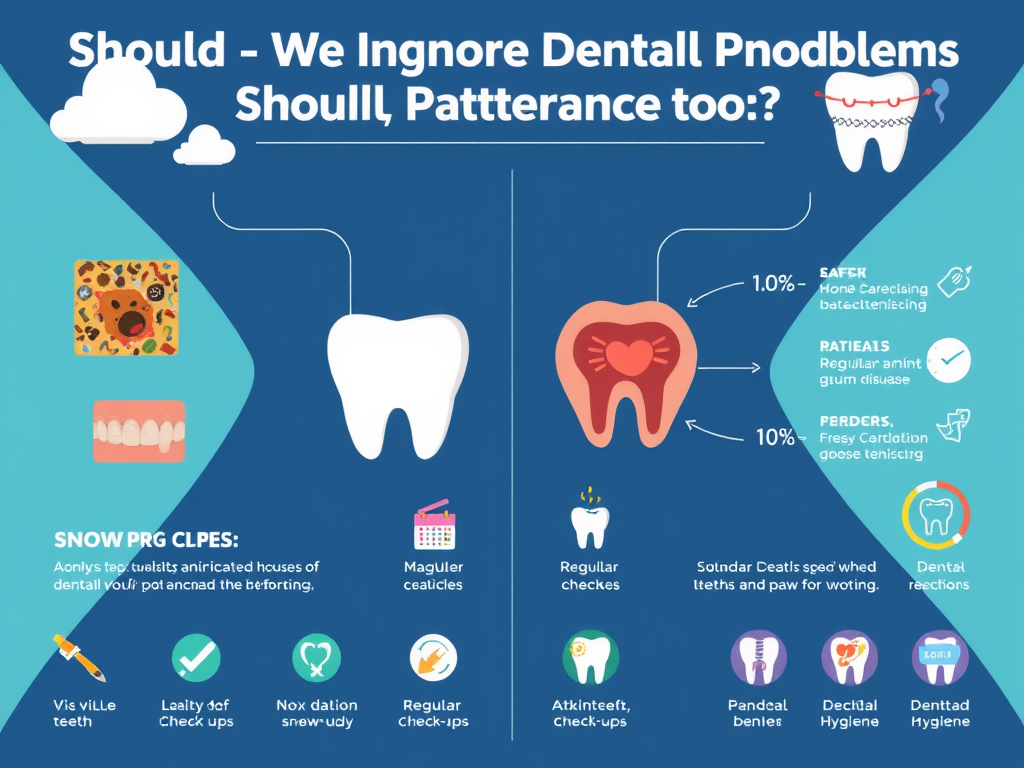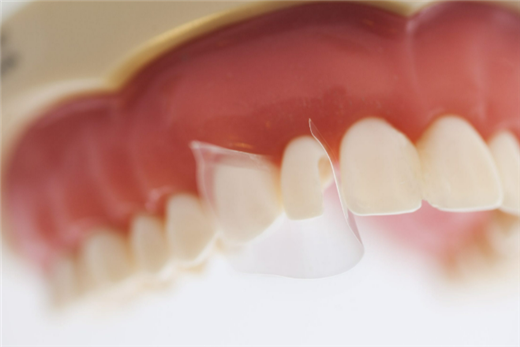Australia and New Zealand Dental CAD/CAM: Oceania's Digital Transformation
2026-01-20
2025-03-24
Dental health is a crucial aspect of overall well-being, yet many people tend to overlook or ignore dental problems until they escalate into more serious issues. This article explores the importance of paying attention to dental health, the consequences of neglecting dental problems, and practical steps to maintain good oral hygiene.

Dental health refers to the condition of the teeth, gums, and mouth. It encompasses a range of factors, including the absence of cavities, gum disease, and tooth decay, as well as the presence of healthy gums and a clean mouth. Good dental health is vital not only for maintaining a beautiful smile but also for overall physical health.
1.
Physical Health: Poor dental health can lead to a variety of health problems, including heart disease, diabetes, and respiratory infections. The mouth is a gateway to the body; bacteria from dental issues can enter the bloodstream and affect other organs.
2.
Mental Health: Dental problems can significantly impact self-esteem and mental well-being. Individuals with dental issues may feel embarrassed about their appearance, leading to social withdrawal and anxiety.
3.
Quality of Life: Oral health directly affects one's ability to eat, speak, and enjoy life. Dental pain can be debilitating, making it difficult to perform daily activities.
Cavities, or tooth decay, occur when bacteria in the mouth produce acids that erode the tooth enamel. If not treated, cavities can lead to severe toothaches and infections.
Gum disease, or periodontal disease, is an infection of the tissues that surround and support the teeth. It can lead to gum recession, tooth mobility, and even tooth loss if left untreated.
Persistent bad breath, or halitosis, can be a sign of underlying dental issues, such as gum disease or tooth decay. It can also result from poor oral hygiene, dry mouth, or certain foods.
Tooth sensitivity is characterized by discomfort or pain in response to hot, cold, or sweet stimuli. It can result from worn enamel, gum recession, or cavities.
Oral cancer can develop in any part of the mouth, including the lips, gums, and tongue. Early signs may include sores that do not heal, lumps, or changes in the lining of the mouth.
Ignoring dental problems often leads to increased pain and discomfort. What may start as a minor issue, such as a small cavity, can escalate into a severe toothache requiring more invasive treatment.
Delaying treatment for dental problems can result in more complex and costly procedures down the line. For instance, a simple filling can turn into a root canal if a cavity is left untreated.
Neglecting dental health can lead to tooth loss. Gum disease, for example, can cause the supporting structures of the teeth to deteriorate, resulting in mobility and eventual loss of teeth.
Research has shown a strong correlation between oral health and systemic diseases. Ignoring dental problems can increase the risk of conditions such as heart disease, diabetes, and respiratory infections, leading to further health complications.
Dental issues can negatively affect a person's quality of life. Pain, discomfort, and embarrassment can lead to social anxiety, impacting relationships and overall happiness.
One of the most effective ways to maintain dental health is to schedule regular check-ups with a dentist. Routine examinations can help identify potential problems early on, preventing more severe issues.
Maintaining good oral hygiene is essential for preventing dental problems. This includes:
· Brushing: Brush your teeth at least twice a day using fluoride toothpaste to remove plaque and food particles.
· Flossing: Daily flossing helps remove plaque and food debris from between the teeth and below the gumline, areas that a toothbrush cannot reach.
· Mouthwash: Using an antimicrobial mouthwash can help reduce plaque and gingivitis while freshening breath.
A balanced diet plays a significant role in dental health. Foods rich in vitamins and minerals, particularly calcium and vitamin D, support strong teeth and bones. Limiting sugary snacks and drinks can also help prevent cavities.
Tobacco use is a significant risk factor for various dental problems, including gum disease and oral cancer. Quitting tobacco can improve overall dental health and reduce the risk of serious conditions.
Pay attention to any changes in your oral health. If you experience pain, sensitivity, or other unusual symptoms, do not ignore them. Seeking timely treatment can prevent further complications.
Despite the importance of dental health, several barriers can prevent individuals from seeking care:
The cost of dental treatments can be a significant deterrent. Many people lack dental insurance or find that their coverage does not adequately address their needs. Exploring dental tourism or finding clinics that offer affordable care can be viable options.
Dental anxiety is common and can prevent individuals from seeking necessary care. Open communication with dental professionals and exploring sedation options can help alleviate fears.
Busy schedules can make it challenging to prioritize dental appointments. However, planning ahead and scheduling regular check-ups can help individuals stay on top of their dental health.
Some individuals may not fully understand the importance of dental health or the consequences of neglecting dental problems. Educational initiatives can help raise awareness and encourage proactive care.
Ignoring dental problems can lead to a host of negative consequences, including increased pain, higher treatment costs, and systemic health issues. Conversely, paying attention to dental health through regular check-ups, good hygiene practices, and a balanced diet can help prevent issues and promote overall well-being.
By prioritizing dental health and being proactive in addressing problems, individuals can enjoy a healthier mouth and a better quality of life. Education, awareness, and access to affordable care are essential components in the ongoing effort to improve dental health for all. Ultimately, investing in dental health is an investment in overall health and happiness.
In today's fast-paced world, it's easy to overlook dental problems until they become severe. However, understanding the importance of dental health and taking proactive measures can lead to a lifetime of healthy smiles. By prioritizing dental care and seeking treatment when necessary, individuals can enjoy the benefits of good oral health and its positive impact on their lives.

Dry & wet milling for zirconia, PMMA, wax with auto tool changer.
learn more
High-precision 3D scanning, AI calibration, full-arch accuracy.
learn more
40-min full sintering with 57% incisal translucency and 1050 MPa strength.
learn more

40-min cycle for 60 crowns, dual-layer crucible and 200°C/min heating.
learn more
High-speed LCD printer for guides, temporaries, models with 8K resolution.
learn more
2026-01-20

2025-11-26

2025-11-17